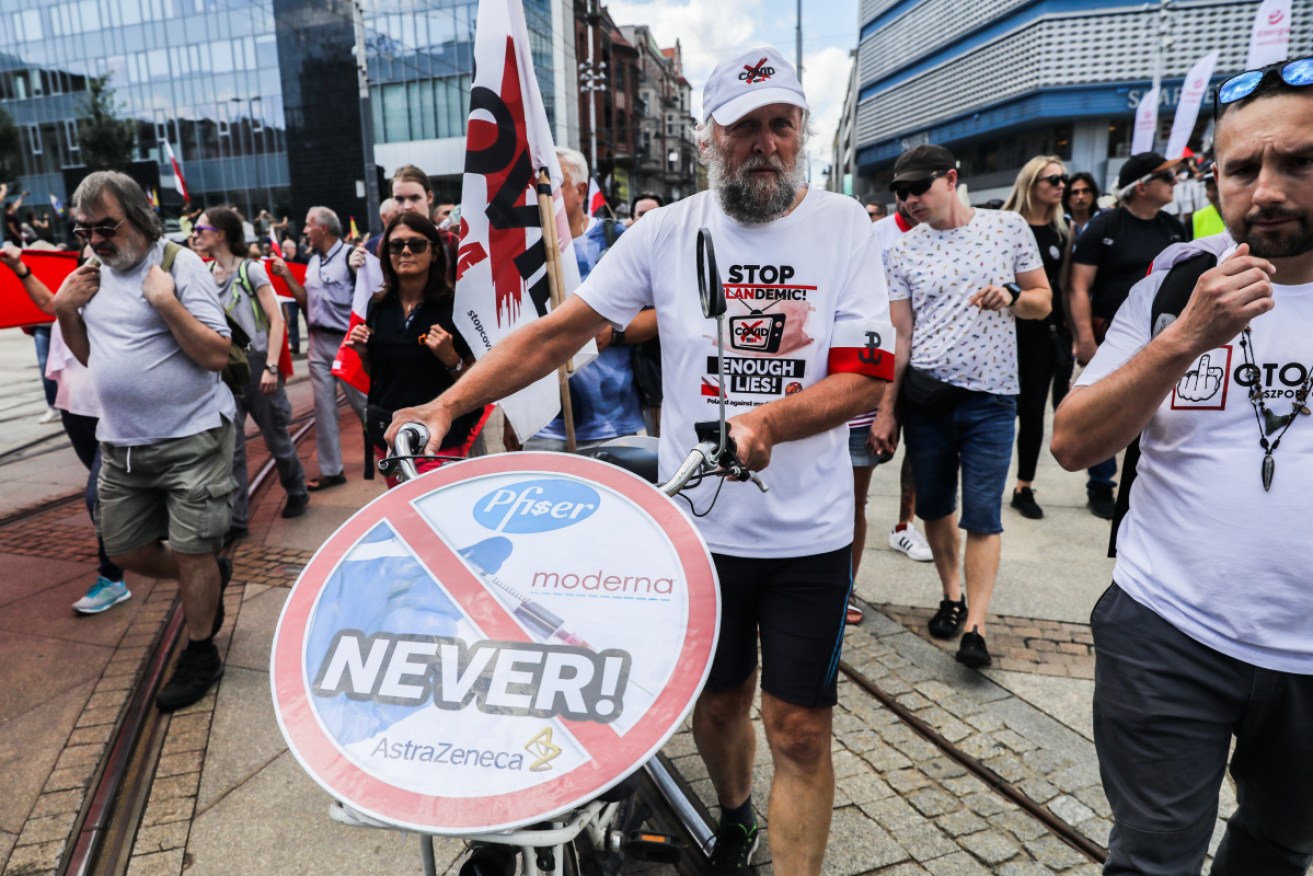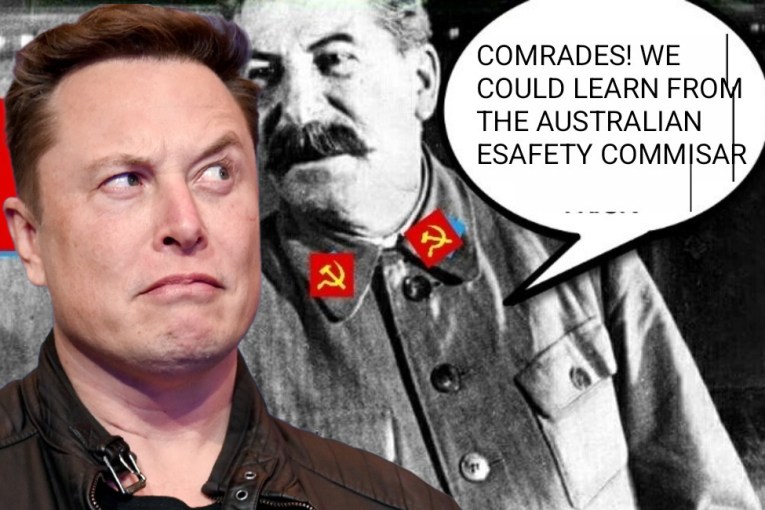How Australia’s Pfizer rollout is benefiting from Polish vaccination hesitancy


Australia's Pfizer stocks are benefitting from a militant Polish anti-vaxxer movement. Photo: Getty
Australia’s purchase of more than a million new doses of the Pfizer vaccine is a direct result of vaccination hesitancy in Poland.
Prime Minister Scott Morrison announced on Sunday that the federal government had secured the doses in a “straightforward transaction” with the Eastern European nation but declined to elaborate on the deal.
“We have purchased the additional vaccines, I can’t go into the commercial arrangements. I am sure you will understand,” he said.
Although Australia’s vaccination program has relied mainly on AstraZeneca, confusing health advice and subsequent hesitancy has slowed the rollout.
As a result, the federal government has frantically sought to supplement its meagre stocks of Pfizer, which is the preferred vaccine for most of the population.
Poland, meanwhile, has a surplus of vaccines as the number of people in the country registering for vaccination continues to slow.
The Eastern European nation has experienced a worrying rise in anti-vaccination incidents in recent months, escalating from mass protests to the burning of a vaccination facility.
Health Minister Andrzej Niedzielski called the destruction of the vaccination centre last week an “act of terror” against the state and “a clash of civilization against barbarity”.
The arson was just one example of the Polish anti-vaxxer movement becoming bolder in its attempts to undermine the country’s inoculation campaign, with reports of people verbally abusing paramedics and vaccination centre workers across the nation.
Last week, crowds of Poles attended Silesian Freedom March in the city of Katowice to protest against COVID restrictions introduced by the government.

The Polish anti-vaccination movement has become bolder in recent weeks. Photo: Getty
One of the main points of contention was the government’s plans to introduce segregation between those who have been vaccinated and those who have not.
Poland has vaccinated more than 18 million of its 38 million citizens after ordering about 100 million doses from various producers.
And although that mark is short of the goal needed to achieve herd immunity, the country’s slowing vaccination rate coupled with its surplus of supply moved the government to look at reselling its stocks.
“We want to use surplus for resale,” Michał Kuczmierowski, head of Poland’s Government Strategic Reserves Agency, told the Polish Press Agency last month.
Early in July, Poland went as far as launching a national lottery offering both money and other prizes in a bid to tempt its citizens to get vaccinated.
Health Minister Adam Niedzielski at the time said every method to increase the level of vaccination was “invaluable”.
“We must do everything to ensure the number of vaccinations increases dynamically, as we are all aware that the interest is slowly decreasing,” Mr Niedzielski was quoted as saying by PAP.
“We also see in public opinion polls that the number of people willing to get vaccinated has stopped at around 70 per cent, and we have 50-something per cent given the first dose,” he said.
Tweet from @CaseyBriggs
Poland, which has recorded more than 2,885,000 COVID cases and more than 75,000 deaths since the start of the pandemic, has seen new daily cases across the nation drop to fewer than 200 in recent days.
Poland initially offered to share its surplus vaccines with low and middle-income countries, including its Eastern European neighbours.
“The decision to also add Australia to the list was taken against the backdrop of the current outbreak of Delta variant in the country, following the talks between both countries’ officials, including the Prime Ministers and Foreign Ministers,” the Polish embassy in Canberra said in a statement on Sunday.
Polish hesitancy
A Polish study, conducted by Krakow’s Jagiellonian University and the SWPS University of Social Sciences and Humanities in Wroclaw, cited the spread of attention-grabbing anti-vaccine arguments, as well as overall distrust among Poles of ‘Big Pharma’ and science and health providers, as the driver for the nation’s vaccine hesitancy.
The study of people who self-identified as either ambiguous towards or opposed to vaccination, concluded that vaccine deniers were mostly led by a generalised, negative attitude to vaccines.
Many respondents reported they did not remember the sources of their anti-vaccine information and raised their fears in general terms, while others attributed autism, allergies, or children getting sick to vaccines – with no medical evidence to back up their claims.
“I was very pleased with the announcement the Prime Minister made shortly before this press conference to say that NSW will be receiving an additional half million doses of Pfizer,” Premier Gladys Berejiklian said.
Welcome windfall
Victorian Premier Daniel Andrews, meanwhile, said that while the new Pfizer doses was “good news”, “the best vaccine is the one you get today”.
“We always want more vaccine rather than less. I’m not entirely certain when [more Pfizer doses] will come to us,” Mr Andrews said.
“I wouldn’t advise anyone to change their plans based on that.”








